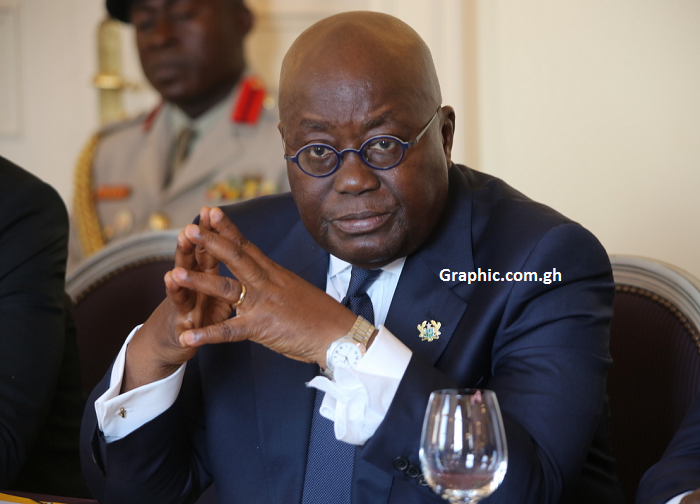
Ghana united against corruption - National Anti-Corruption Action Plan
Ghana’s strategy against corruption was conceived at the first National Integrity Conference organised by the Commission on Human Rights and Administrative Justice (CHRAJ) in 1998.
Then, a robust public ethics infrastructure for a society of integrity, was the idea.
Advertisement
By the time of the second integrity conference in October 2011, a national anti-corruption strategy was up for validation.
In July 2014, Parliament unanimously passed the National Anti-Corruption Action Plan (NACAP) document as the country’s strategy.
It was also in line with the United Nations Convention Against Corruption (UNCAC) that prescribed “coordinated anti-corruption policies” for countries and which Ghana had ratified.
Implementation of the strategy began in 2015 after the validation of a reporting tool to assist partners in the reporting of the execution of their roles under NACAP.
Since the implementation began in 2015, two progress reports on the country’s performance have already been issued at the end of 2015 and 2016.
At the inception of the strategy, there was a lot of goodwill shown by the executive and by Parliament, when members unanimously passed the document in a non-partisan manner.
With the executive, former President John Dramani Mahama, took the personal interest in writing to all ministries, departments and agencies (MDAs) on March 19, 2015 to “take full responsibility for their areas of oversight and ensure that measures are taken to combat corruption in the implementation of various roles under NACAP,”
The former President made NACAP a major criterion for assessing the performance of ministries, chief directors and heads of public institutions, the Ministry of Finance was to ensure that MDAs and Metropolitan, Municipal, and District Assemblies (MMDAs), as well as all other public institutions budgeted for their assigned roles under NACAP.
Last year, the government of Nana Addo Dankwa Akufo-Addo, for the first time in the history of NACAP, devoted about GH¢1.5 million to the implementation of NACAP, although the amount has subsequently reduced.
The NACAP story is not all that rosy, as politicians after their initial in-front-of-camera pledges, do not seem too committed to the common strategy, but rather to some party manifesto pledge, for instance, the creation of the Office of the Special Prosecutor.
The strategy that involves all Ghanaians in the fight, and that puts premium on public awareness of corruption to reduce corruption tolerance levels is not the interest of our political elite.
The NACAP is coordinated and monitored by the CHRAJ, however, the office of the President is the lead implementing agency.
The letter to the heads of public institutions from the Office of the President on March 19, 2015, stated that “In December 2014, H.E. the President of the Republic of Ghana established a High-Level Implementation Committee (HiLIC) to provide strategic policy guidance from the highest level of government to MDAs and other implementing bodies to roll out action plans for their respective corporate entities.”
The HiLIC is chaired by the Chief of Staff of the President, and during the time of former President John Mahama, a deputy Chief of Staff, Mr Johnny Osei showed personal commitment to the process.
He was often seen at functions of NACAP, reiterating the then government’s commitment to the process.
NACAP will succeed when our political leaders champion and lead the process, just as they championed the establishment of the Office of the Special Prosecutor (OSP).
We must bear in mind that the OSP is mentioned in the NACAP and is one of the several elements in the national strategy.
While a robust sanctions mechanism has been established to go after corrupt public servants with the establishment of the OSP, there is the need for an equally robust societal campaign, led by the President, his officials and Parliamentarians that will make corruption an insufferable activity.
It will involve the commitment of resources, time and “the guts to do the right” by our representatives in Parliament, the President and his men. Will they have the mettle for that?




